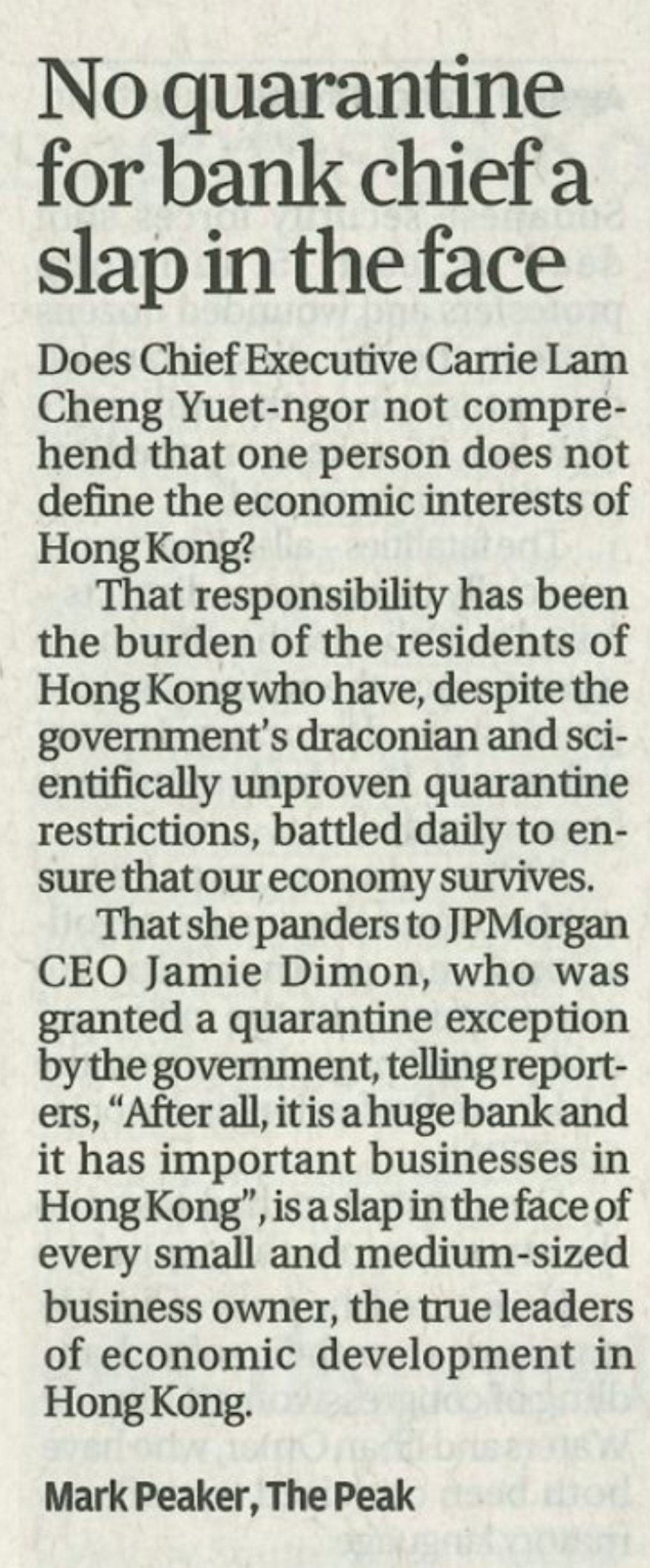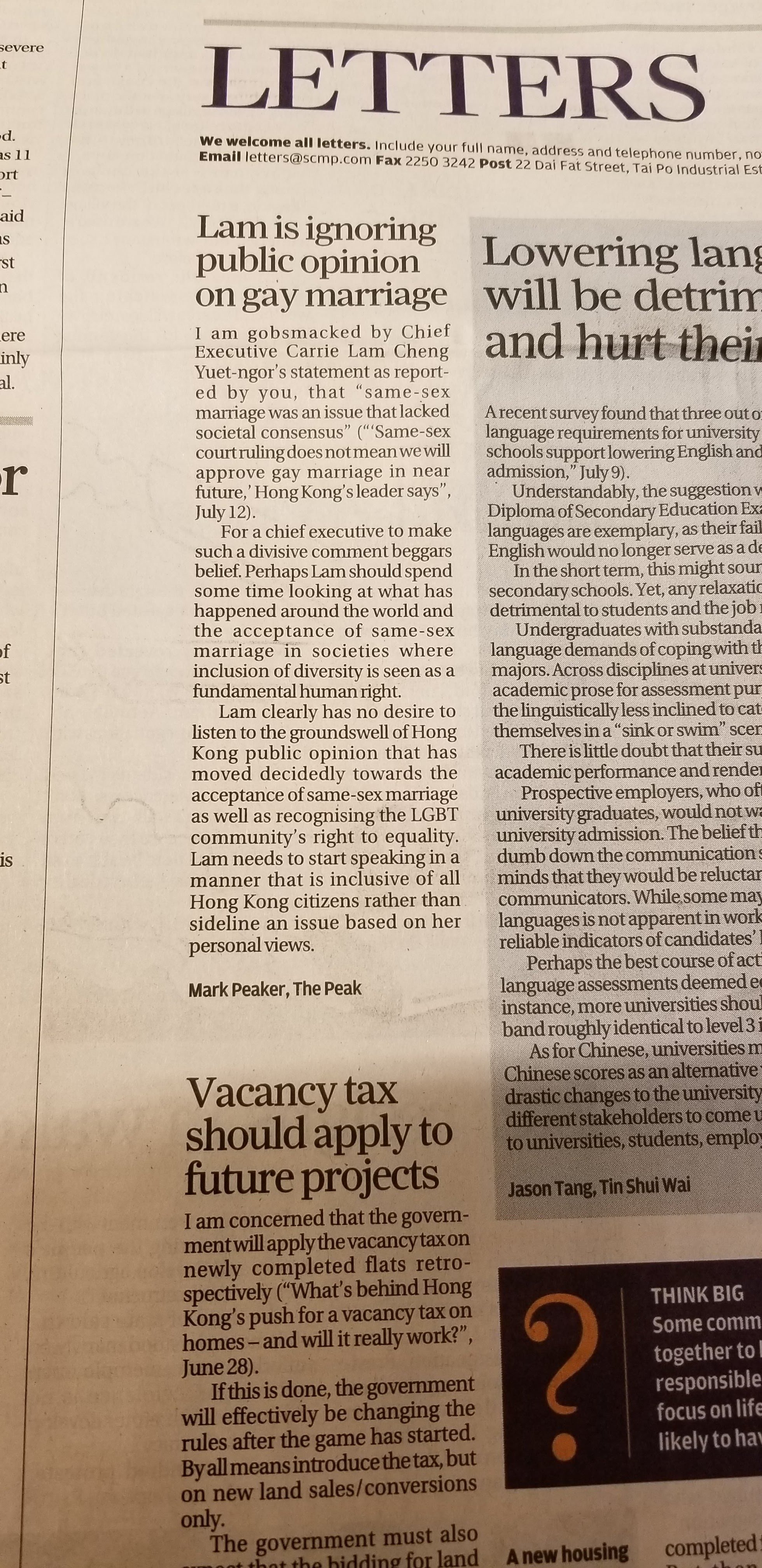
Prolific South China Morning Post letter writer Mark Peaker on his new book, why lawmaker Junius Ho ‘needed to be shut up’, and freedom of expression
- For 18 years Mark Peaker has been writing to the South China Morning Post about everything from Hong Kong’s Covid response to LGBTQ rights
- A selection of his letters, illustrated by the Post’s political cartoonist Harry Harrison, can be found in his new book, Peaker of the Peak
For the past 18 years, one particular signature has consistently graced the South China Morning Post’s letters to the editor section: “Mark Peaker, The Peak”.
Originally from London, Peaker first moved to Hong Kong in 1998 to take up a job in finance before co-founding the 3812 Gallery in Central.
While his propensity for writing letters precedes his time in the city – he had already had letters printed in The Times in Britain and The Sydney Morning Herald in Australia – it is his almost two-decades-long relationship with the Post that led him to become known among friends and the newspaper’s readers as a prolific letter writer.
Now, his letters to the Post have been collated in a book titled Peaker of the Peak, released on October 12, which includes illustrations by Harry Harrison, the Post’s political cartoonist.
Proceeds from the book will support Shakespeare 4 All, a performance arts organisation in Hong Kong, which Peaker chairs.

Collectively, Peaker’s concise letters provide a layman’s snapshot of Hong Kong history. Since 2003, he has addressed everything from the political to the mundane, from the controversial to the humorous.
In one letter, dated September 19, 2019, he proclaims that then-Chief Executive Carrie Lam “has torn the soul of Hong Kong apart” in response to her government’s handling of the 2019 anti-extradition protests; flip back to August 7, 2016, and you’ll find Peaker poking fun at Pokemon Go players and their zombie-like walking.

Throughout it all, Peaker’s unequivocally honest and unapologetic voice is apparent.
Long critical of Carrie Lam’s administration, he was never shy about attacking how she handled the 2019 anti-government protests or the outbreak of Covid-19.
“When we had an administration that was devoid of contact with the people and a chief executive who seemed not to listen to anybody, that reflected badly on Hong Kong’s international standing,” says Peaker, who is adamant that Hong Kong is still a city within China, and should not be independent.

Another topic that frequently comes up in Peaker’s letters is the issue of LGBTQ rights. In a letter from June 11, 2021, he criticises Hong Kong lawmaker Junius Ho Kwan-yiu for referring to the Gay Games as “disgraceful”.
“He is a man who needed to be shut up,” Peaker says.
“When a 14-year-old kid reads negative – actually, hostile – views [from a government official] of a lifestyle that they wish to live because that’s who they are, then I think they also need to see in print people saying, ‘It’s OK to be gay, it’s OK to have your lifestyle. Don’t hide away who you are because of the naivety of other people.’”

“I believe that we can be critical of the government providing that we are critical in a manner that is not puerile,” he says. He adds that as a private citizen, it is within his rights to voice concern over how the city is being run.
Despite Hong Kong’s difficulties over the past few years, Peaker is optimistic about the city’s ability to recover. He ends his book with a simple “to be continued”, and hopes that through reflecting and looking back on Hong Kong, people will have the courage to move forward.
“The future of Hong Kong is incredibly bright,” he says, “providing that we understand and we get the message to the people that it’s a place where you can have economic opportunity, you can have social harmony, and you can have laughter.”

